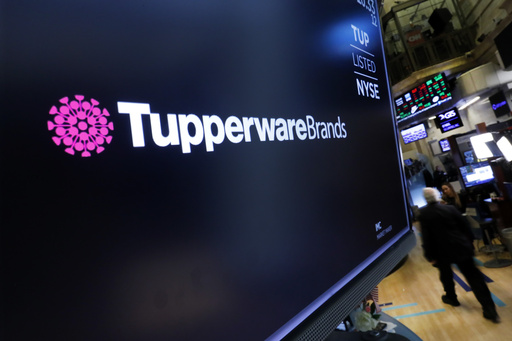Tupperware Brands, known for revolutionizing food storage, has taken a significant step by filing for Chapter 11 bankruptcy protection. The company, headquartered in Orlando, Florida, has announced its intention to operate as usual during the bankruptcy process and is aiming to secure court approval for a sale to safeguard its renowned brand.
Facing challenges in rejuvenating its business, Tupperware observed a slight improvement in sales growth at the beginning of the COVID-19 pandemic; however, overall sales have been on a decline since 2018 due to heightened competition in the market. Financial difficulties have been mounting for the company, leading to the bankruptcy filing.
Speculation regarding Tupperware’s future has been circulating for some time, with the company seeking additional financing last year amid concerns about its sustainability and potential delisting from the New York Stock Exchange. The company’s failure to submit its annual results to the Securities and Exchange Commission triggered a non-compliance notice from the NYSE. Issues concerning liquidity challenges have also been raised in recent months.
In the bankruptcy petition filed on Tuesday, Tupperware disclosed debts exceeding $1.2 billion and assets totaling $679.5 million. The company’s shares plummeted by 75% this year, closing at approximately 50 cents each. Tupperware, established in 1946, originated from chemist Earl Tupper’s quest to invent an airtight seal for plastic containers to reduce food wastage.
The brand gained immense popularity in the mid-20th century, particularly through Tupperware parties that commenced in 1948. These parties provided women with entrepreneurial opportunities, enabling them to sell products within their social circles. Despite the bankruptcy announcement, Tupperware emphasized that there are no immediate alterations to the agreements with its independent sales consultants.
As per court documents, Tupperware presently employs over 5,450 individuals across 41 countries and collaborates with a global sales force of more than 465,000 freelance consultants in nearly 70 countries. The company expressed intentions to transition into a technology-driven, digital-first entity, although specific strategies were not detailed in the announcement.
Tupperware President and CEO Laurie Ann Goldman acknowledged the brand’s financial challenges and highlighted that the bankruptcy process is intended to offer crucial flexibility as the company transitions. Affirming the brand’s resilience, Goldman reassured stakeholders that Tupperware remains committed to delivering high-quality products during this period of transformation.
Goldman, who assumed the role of CEO in October 2023, succeeding a succession of leadership changes, emphasized continuity in serving customers. The message relayed was that whether one is a part of the Tupperware team, a consumer, or simply an admirer of their products, everyone is an integral part of the Tupperware family.
